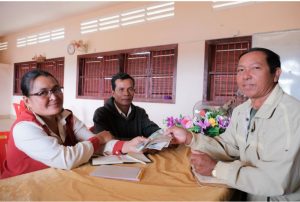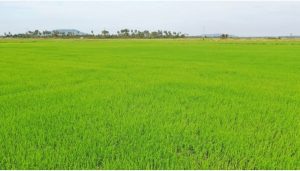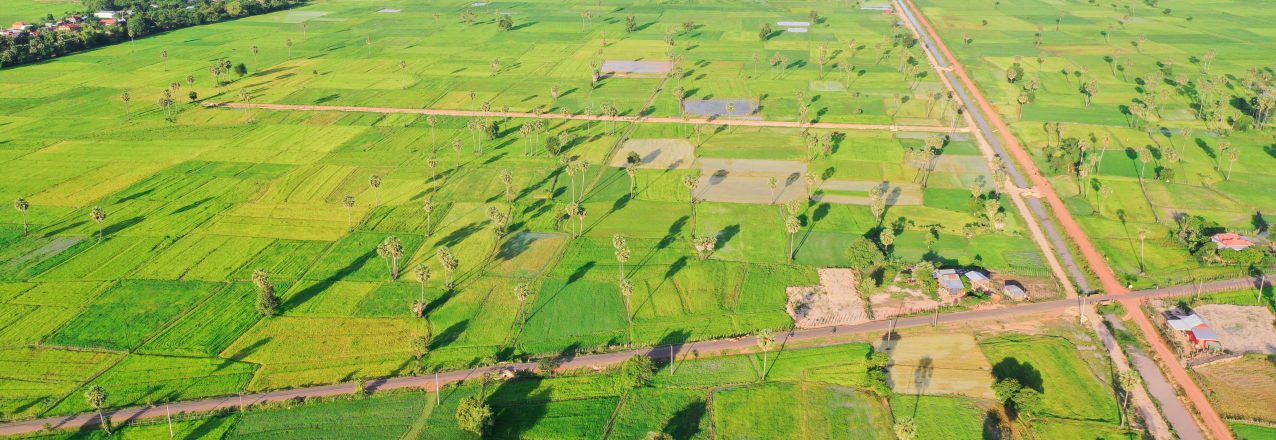By USAID Greening Prey Lang
Originally published March 22, 2021 on USAID Greening Prey Lang Exposure site
Kampong Thom province is one of Cambodia’s agriculture hubs. Across the province rivers originating in Prey Lang Wildlife Sanctuary support vast irrigation systems. The irrigation systems are frequently managed by Farmer Water User Communities (FWUC). One community irrigation system, Tang Krasang, is led by Norng Theourn.
Spanning over 10,000 hectares, the Tang Krasang irrigation system supports small holder farmers and companies to grow rice, mangos, and many other fruits and vegetables.
The irrigation directly benefits 13,555 people out of whom 6,799 are women. There are 38 committee members managing the Tang Krasang Farmer Water User Community association, and out of those 14 are female. The female committee members are in charge of collecting fees from members, managing the association’s finances and other responsibilities.
Thanks to the irrigation system farmers can grow two to three crops per year. For each crop cycle water users pay $10 per irrigated hectare. Since its establishment in 2017 over $15,000 in fees have been collected by the Tang Krasang Farmer Water User Community. Fees have been used for maintenance of the irrigation system and community development projects.

Nong Theoun is eager to make the irrigation system more climate resilient. For him, climate resilience includes securing land titles for water users and paying upstream communities for conserving the forests that provide water to the irrigation system.
To achieve this vision the Tang Krasang Farmer Water User Community has been working with USAID Greening Prey Lang and a provincial level river basin management committee. Efforts are underway to secure land titles for community members who want to access the irrigation system. Proof of land ownership is required to gain access to irrigated water.
Once titles have been secured annual fees collected by the FWUC will skyrocket. Money in the bank will allow Tang Krasang to achieve their climate resilience goals.
“When all farmers in our community have legal land title and can fully participate in the FWUC, contribution fees will increase to between US $60,000 to $120,000 per year, depending on whether they grow two or three crops per year. Before construction of the canal, we could grow only one rice crop each year, with yields less than 1 ton per hectare annually. Now we can grow at least two crops a year, increasing yields to 2 to 3 tons per hectare.

Increased fees will allow for climate resilient infrastructure upgrades. Climate change has made the cycles of droughts and flooding in Cambodia more frequent and more intense. These extremes must be factored into any infrastructure improvements so that the upgraded facilities can withstand climate extremes.
Additional fees will also enable Mr. Nong’s community to provide payments to upstream forest communities to patrol their forests and support law enforcement efforts. Through this nascent payment for ecosystems services scheme downstream water users will contribute to conserving the forests in and around Prey Lang Wildlife Sanctuary.
“Unseasonable droughts and unpredictable rainfall are no longer a worry. We are able to reliably grow rice and other crops because the canal provides sufficient water.”


